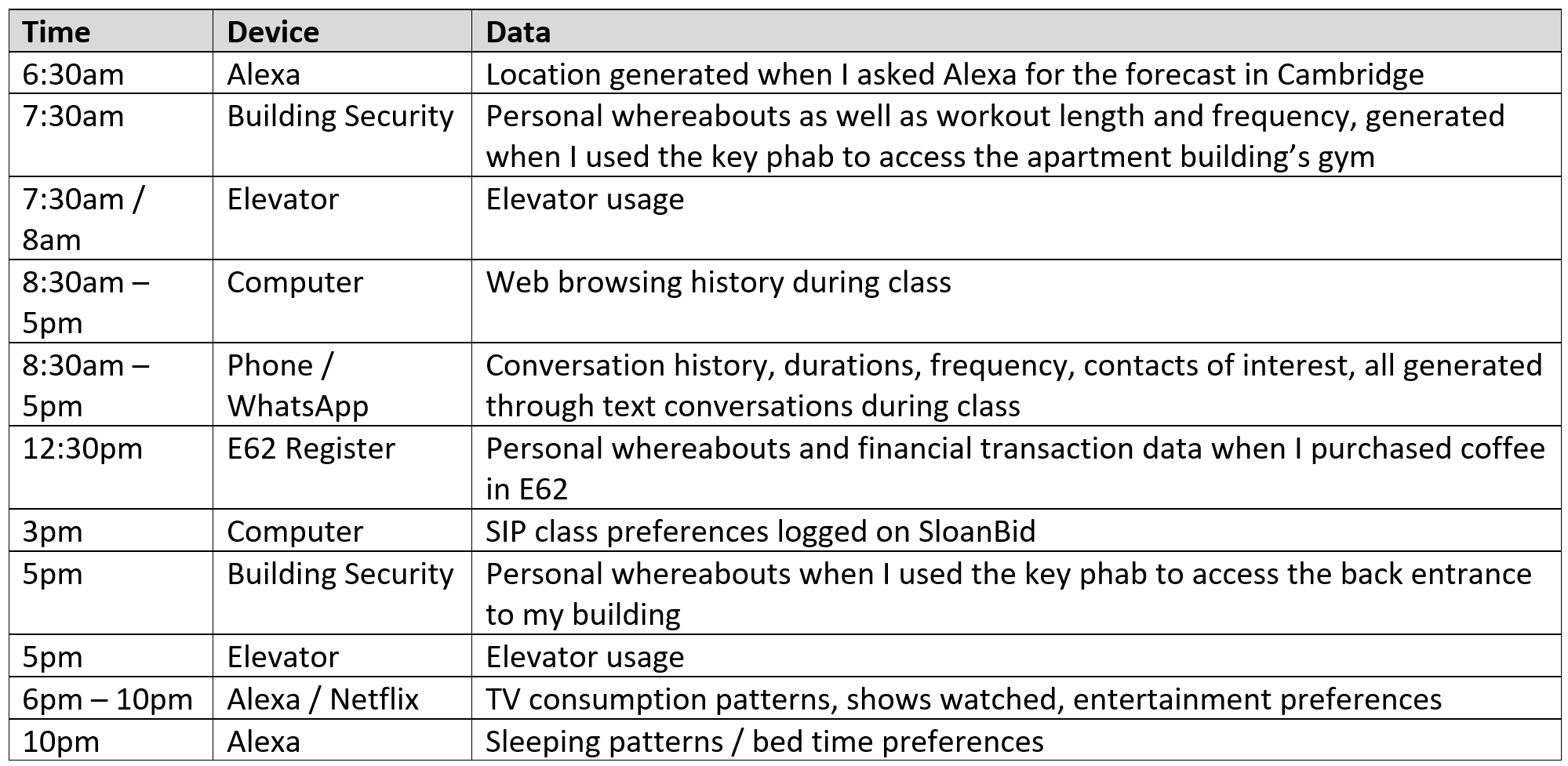Sunday started with a horrifying notification on my iPhone: my weekly Screen Time Report was available. Despite setting screen time goals for all apps Apple identifies as “social media” (including, curiously, my calendar and calculator widgets), my usage was up 22% from last week. This prompted me to delete the facebook app from my phone, which sent a push notification to the web version reminding me to re-download the app. The fluidity with which my data is transmitted between devices disturbed me, but not enough to stop using the platform.
I continued to surf the internet for more time than I’d like to admit. I’ve long abandoned any sense of privacy on the internet, so the data collected at my most frequently visited sites (Twitter, different e-commerce outposts, Gmail) barely even registers. I read an article about disabling Gmail’s nudge function that reminds you to respond or send follow-ups based on the time elapsed, and started to imagine a future in which highly responsive Gmail accounts are celebrated (by some form of social credit/rating). This is already happening on Facebook, where you can see the average time it takes a business account to respond to messages. What if my email response times are being measured to be used against me in the future? I disabled the nudge feature.
I continued through my rather lazy Sunday by completing printed readings, cooking meals, and doing laundry. Aside from my water and electricity use, I remained off the data grid for most of the day.
This particular Sunday happened to be Oscar Sunday, which also commemorates one of the few days during the year that I watch live, broadcast television. As the audience counts for non-streaming events dwindle, I realized that my contribution to the Nielsen ratings by tuning in live to watch the Academy Awards unfold might actually have an effect on the institution of the Oscars as a whole. The ceremony, facing falling ratings and pressure from its broadcast host, ABC, unveiled and later rolled back a series of interventions in attempt to increase the show’s ratings. These interventions, including proposing and then nixing a Best Popular Movie award and relegating certain award announcements to the commercials, were based purely on projected populations that would tune in and their respective attention spans. As a film traditionalist and award enthusiast, I forced the attendees of my Oscars party to stay through to the final credits, and not pause or fast-forward through commercials. The Nielsen ratings actually affected my behavior, instead of the other way around. I wonder how long these data will continue to be collected, given their increasing irrelevance, and how these non-sporting live events will have to change to adjust to this future.
